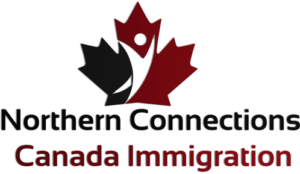Introduction
Citizenship and Immigration Canada places a strong emphasis on family reunification and carries a long history of reuniting immigrants by allowing them to sponsor their family members living overseas and in Canada. As per IRCC’s released immigration levels plan for 2023-2025, Canada aims to welcome over 300,000 immigrants as a part of the family class. In 2020, the family immigration program accounted for 59% of permanent resident admissions.
Immigration and refugee protection regulations represent Canada’s dedication to reunification and mandate that sponsors take care of their new family members in Canada.
If you’re a Canadian citizen or permanent resident and want to sponsor your relatives or immediate family members to come to Canada, you can do so by sponsoring their stay here. But how to know if you or your relatives meet the sponsorship requirements? Find out below.
Who is eligible to sponsor from their own family for Canadian citizenship?
The following types of relatives can be sponsored to obtain Canadian citizenship:
Partner: These are 2 categories: Common law and conjugal partner.
- Common-law partner- A common-law partner gets sponsorship if the sponsor is in a conjugal relationship with them for at least 12 continuous months without long interruptions. The sponsor must also secure evidence of a common law relationship through shared household and agreements or documents displaying the same.
- Conjugal Partner- A conjugal partner can obtain sponsorship if the sponsor has been in the relationship with them for at least 1 year. Further, the conjugal partner and sponsor are not allowed to get married or live together due to certain exceptional immigration and legal reasons in the conjugal partner’s country of residence.
Spouse: A sponsor may sponsor their partner if they are over 18 years of age and their marriage is legally valid in the country where it is performed and in Canada.
Dependent Children: The sponsor has the right to sponsor their child or the child of their partner/spouse. For the child to qualify as a dependent, they must be younger and below 22 years and not have a common-law partner. The other contingent factor is if the child is above 22 and unable to financially support themselves due to their mental or physical condition as they were already substantially dependent on the sponsor.
Orphaned brother, sister, nephew, niece or grandchild: This category requires fulfillment of the following criteria:
- They must be under 18 years of age.
- They must be associated with the sponsor by blood or adoption.
- They must be single and are not part of a common-law relationship or married.
- Both of the parents must have passed away. This condition would not apply if the parents are missing, still alive, detained in jail, abandoned, and someone else is taking care of the child on behalf of living parents.
Other Relatives: In this case, sponsorship to other relatives would be granted if they are related to the sponsor by blood or adoption. It is mandatory to meet the following conditions:
- The sponsor does not have living relatives such as a partner/spouse, children, grandparents, or orphaned relatives to sponsor.
- The sponsor has no relatives that are Canadian citizens, permanent residents, and registered under the Indian Act.
Who is eligible to become a sponsor as per Canada’s family Sponsorship Program?
The basic requirements to qualify as a sponsor in Canada are:
- They must be 18 years or older.
- They must provide financial support from the date the relatives become permanent residents until 20 years based on their age.
- They must fulfill the defined income guidelines. See section 3 for more information regarding income thresholds.
- They must sign a sponsorship agreement with sponsored family members agreeing that they will make an effort to support themselves.
Who is not eligible to become a sponsor in Canada?
Some essential circumstances in which the sponsor cannot sponsor permanent citizenship of their family member to Canada due to non-fulfillment of the eligibility requirements:
- They are bankrupt and have not yet been released from it.
- They are serving a prison sentence.
- They failed to pay an immigration loan or alimony as a family support payment and missed some other payments.
- They got convicted for any offence and violent crime against a relative.
- They receive social assistance for reasons other than disability.
- They have a criminal history.
- They failed to fulfill the terms of the sponsorship agreement that they signed in the past for sponsoring a relative.
To obtain first-hand information regarding the Canadian Sponsorship system, please contact us.
What are the income requirements to sponsor family members for Canadian citizenship?
The sponsor’s ability to financially support the basic needs of sponsored family members is assessed through Minimum Necessary Income(MNI) threshold or Low Income Cut-Off. For this purpose, a family size unit is established and calculated.
To sponsor parents and grandparents, the potential sponsor must surpass the MNI for three consecutive taxation years preceding the sponsorship application date. MNI must be generated in Canada and disclosed to the Canadian Revenue Agency via T4 Income ships.
For sponsors residing in the province of Quebec, they must meet the requirement of definedgross income determined based on Quebec’s sponsorship requirements from Canadian sources during the last 12 months and for the period of their undertaking.
What are the steps involved in completing an application for Canadian Family Sponsorship?
This is a 4 step process through which eligible relatives obtain Canadian citizenship and become permanent residents:
- The sponsor must fill out the Sponsorship application of family members where they have to:
- Check, complete, and include relevant forms and documents with the online sponsorship application.
- Digitally sign a medical condition statement, financial evaluation, forms for giving access to sponsorship application and application to sponsor, sponsorship agreement, and undertaking with the principal applicant(sponsored relative).
- Complete and sign a Separation declaration for minors traveling to Canada with a common-law partner(if applicable).
- Electronically sign the online application and upload the necessary forms.
2. Fill out the relative permanent residence application of the relatives, create a Permanent Residence online Application portal account, and fill and upload forms such as Schedule A/ Background Declaration, a Generic application form for Canada and additional family information.
It is important that sponsorship and permanent resident status applications are submitted together at the same time.
3. Provide biometrics and photos within 30 days of the received acknowledged letter from the IRCC. There is a biometric fee along with the application.
4. The sponsor should submit the online application after ensuring it has been filled out and electronically signed and all the documents and the sponsorship application fee receipt are uploaded.
What documents are required to sponsor family members for Canadian citizenship?
While submitting a Canada Sponsorship application, it is necessary to submit certain forms and supporting documents to prove eligibility and initiate the process of family sponsorship in Canada.
Interest to sponsor: A form of ‘interest to sponsor’ is to be made to the IRCC- Immigration, Refugees and Citizenship Canada at the beginning of the year, as preference is given on a first-come, first-served basis. Once that has been accepted, one may apply for sponsorship.
Documents to be filled by the sponsor:
- Application to Sponsor and Agreement of Sponsorship and undertaking: An undertaking of willingness to be a sponsor and enable their easy arrival upon approval of the application.
- Financial Evaluation: To be filed by the sponsor, proving the financial ability to care for the sponsored once they arrive in Canada
- Statutory Declaration of Common Law Union: Form to be filled by the sponsor and the co-signer if they are common-law partners.
Documents to be filled by the sponsored person:
- Generic Application form for Canada: The sponsored family members must fill out an online application to become permanent residents.
- Additional Family Information: Provide information on co-dependents and dependent children if they are below the legal age of majority.
- Declaration or a Schedule-A: A self-declaration form must be filled out by all the applicants, dependents, and co-dependents above 18.
- Use of Representatives: Only to be filled when a representative is appointed. It also needs sponsored person to provide information if a representative was appointed in the past.
- Copy of the fee receipt: Fee paid towards the application made.
- Statement of medical condition: As proof of disability for financial assistance from the state.
Documents to be filled by both sponsor and sponsored persons:
- Access to share personal information: A form must be filled out when the sponsor and the sponsored person want to authorize IRCC to release the information related to the case with a designated individual.
- Sponsorship evaluation and relationship information: It includes basic personal details of both the sponsor and the principal applicant. The applicant’s eligibility as a sponsor is evaluated further in the other section of the form.
Strengthening the sponsorship application can be a challenging task, and therefore, the best approach is to get yourself represented by a regulated Canadian immigration consultant, which you can find at northern connections Canadian immigration.
What are the application fees for family sponsorship?
An $1135 fee applies to sponsoring family members in Canada. The following fees apply to processing family sponsorship applications:
1. Biometrics fee- $85
2. Sponsorship fee- $75
3. Right of Permanent Residence fee- $500
4. Principal applicant processing fee- $475
5. Additional fee includes $1050 for the sponsorship of a relative’s partner or spouse and $150 for the sponsorship of dependent children.
The other crucial factor that increases the processing fees depends on the residence of the sponsors, such as Quebec after the permanent residency, which costs around $289.
What is a sponsorship undertaking?
If a person signs a sponsorship undertaking, it results in the stemming of legal and financial responsibilities for the members of the family they are sponsoring. It implies that they need to pay the money and bills on behalf of that family member.
The length of the undertaking is based on a variety of factors and could range from 3 to 20 years. It would not be waived off on account of altered circumstances. They are as follows:
- The duration for sponsoring a family member.
- The relationship shared with the sponsored person.
- Dependent children’s age who wish to immigrate.
How to check the Application status for Canadian sponsorship?
After submitting the sponsorship application, a person can check the status through this IRCC-regulated online portal.
Here are three simple steps to confirm the status of a submitted application:
- First, select the relevant application type out of the various immigration programs.
- Select the family members that have been sponsored for a Family Sponsor Visa.
- The final step is to select the residence, whether it is in Canada or other provinces of Canada.
Moreover, a sponsored person can verify the sponsorship status by linking their online account to the application. This way, they will receive relevant updates and be alerted if any documents need to be submitted.
Let Us Help
Reuniting with family is wonderful, and if you are looking forward to living with your family abroad, now is the time to begin the process! Canada welcomes family reunification through various immigration programs. All you need is the right processes to be carried out.
For handling immigration matters for 10+ years, we have found that every case is unique and requires a different approach, which makes the application stressful and challenging to navigate. We are a regulated Canadian immigration consultant and, therefore, well acquainted with all the rules and regulations in the immigration process and can assist you in making your transition to Canada seamless.
The Team at Northern Connections Canada



